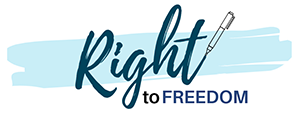A woman with her nephew in Srinagar. Indian soldiers have forced most Kashmiris to stay at or near home. — AFP
The UN Human Rights Commission urges the Indian government to “unlock the situation and fully restore the rights that are currently being denied”
GENEVA (IANS) — The UN Human Rights Commission on Tuesday said it is extremely concerned that people in Jammu and Kashmir are continued to be “deprived of a wide range of human rights” and urged the Indian government to “unlock the situation and fully restore the rights that are currently being denied”.
In a statement, Rupert Colville, spokesperson for the UN High Commissioner for Human Rights, said that though some of the “very restrictive measures” imposed on August 5 when special status for Kashmir was revoked, have been relaxed, “their impact on human rights continues to be widely felt”.
It said while the undeclared curfew was lifted from much of Jammu and Ladakh region within a few days, “but is reportedly still in place in large parts of the Kashmir Valley, preventing the free movement of people, as well as hampering their ability to exercise their right to peaceful assembly, and restricting their rights to health, education and freedom of religion and belief”.
“There have been several allegations of excessive use of force including the use of pellet-firing shotguns, tear gas and rubber bullets by security forces during sporadic protests, with unconfirmed reports of at least six civilian killings and scores of serious injuries in separate incidents since 5 August”.
It said that the UN Human Rights Commission has also “received reports of armed groups operating in Indian Kashmir threatening residents trying to carry out their normal business or attend school, as well as several allegations of violence against people who have not complied with the armed groups” demands. At least another six people have been killed and over a dozen injured in alleged attacks by armed group members since 5 August”.
It said that hundreds of political and civil society leaders, including three former Chief Ministers, have been detained on a preventative basis. While some political workers have reportedly been released, most senior leaders – especially those from the Kashmir Valley – remain in detention.
It called for an independent and impartial investigation into allegations of torture and ill-treatment of people held in detention.
It said while landline telephones are functioning and a state-run telecom company has been allowed to resume partial mobile services, all internet services remain blocked. Media outlets continue to face undue restrictions, with at least four local journalists allegedly arrested in the past three months.
It said the Indian Supreme Court “has been slow to deal with petitions concerning habeas corpus, freedom of movement and media restrictions”.
The Jammu and Kashmir State Human Rights Commission, the State Information Commission (which implements the right-to-information laws) and the State Commission for Protection of Women and Child Rights are among key institutions being wound up, with the new bodies to replace them yet to be established.
“Meanwhile, major political decisions about the future status of Jammu and Kashmir have been taken without the consent, deliberation or active and informed participation of the affected population. Their leaders are detained, their capacity to be informed has been badly restricted, and their right to freedom of expression and to political participation has been undermined”.

